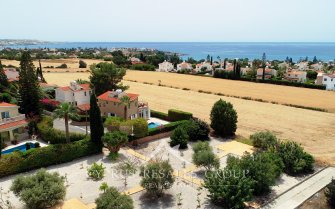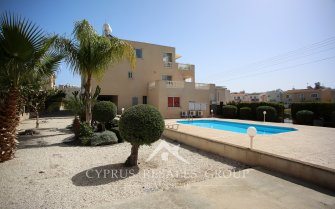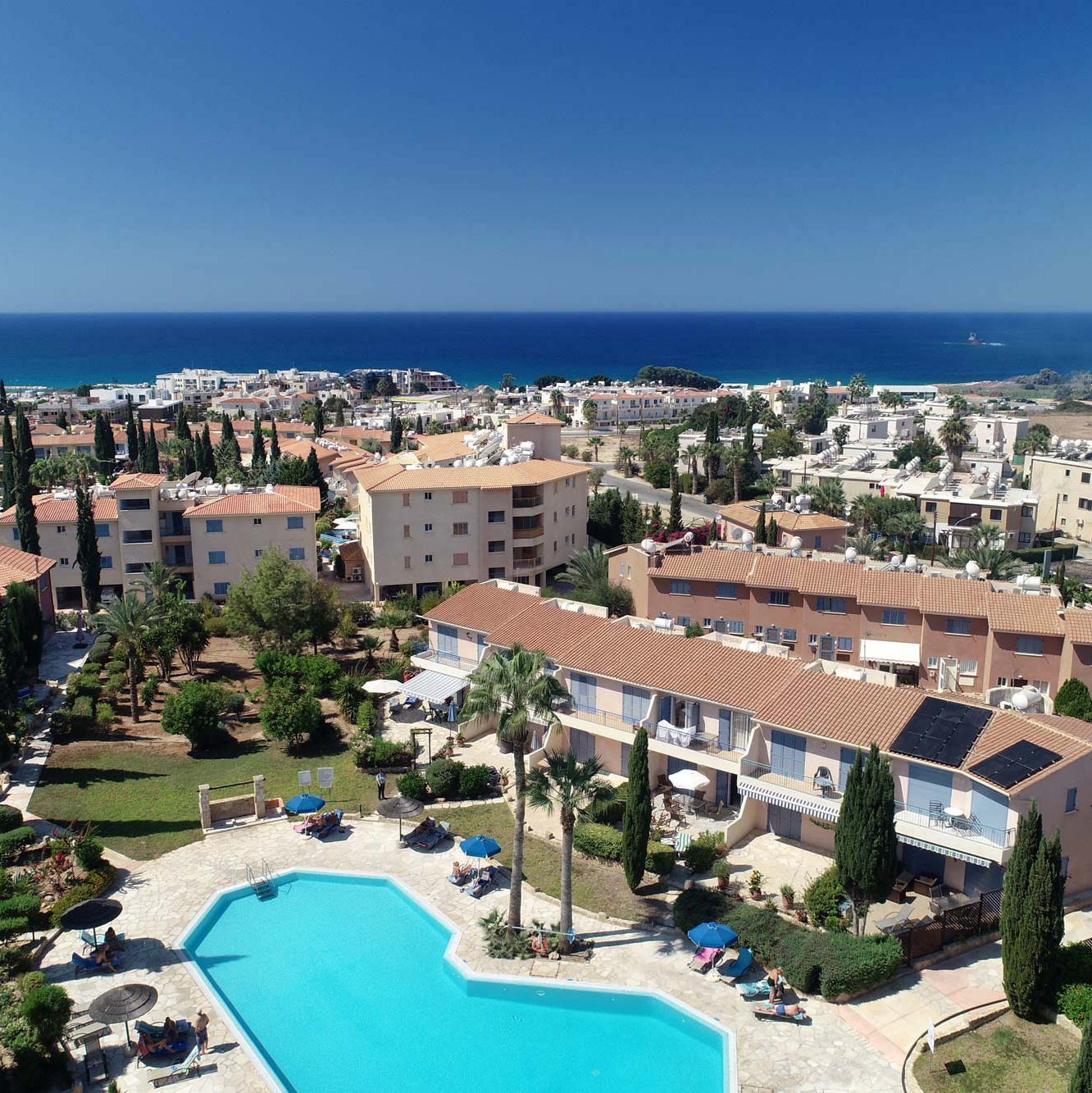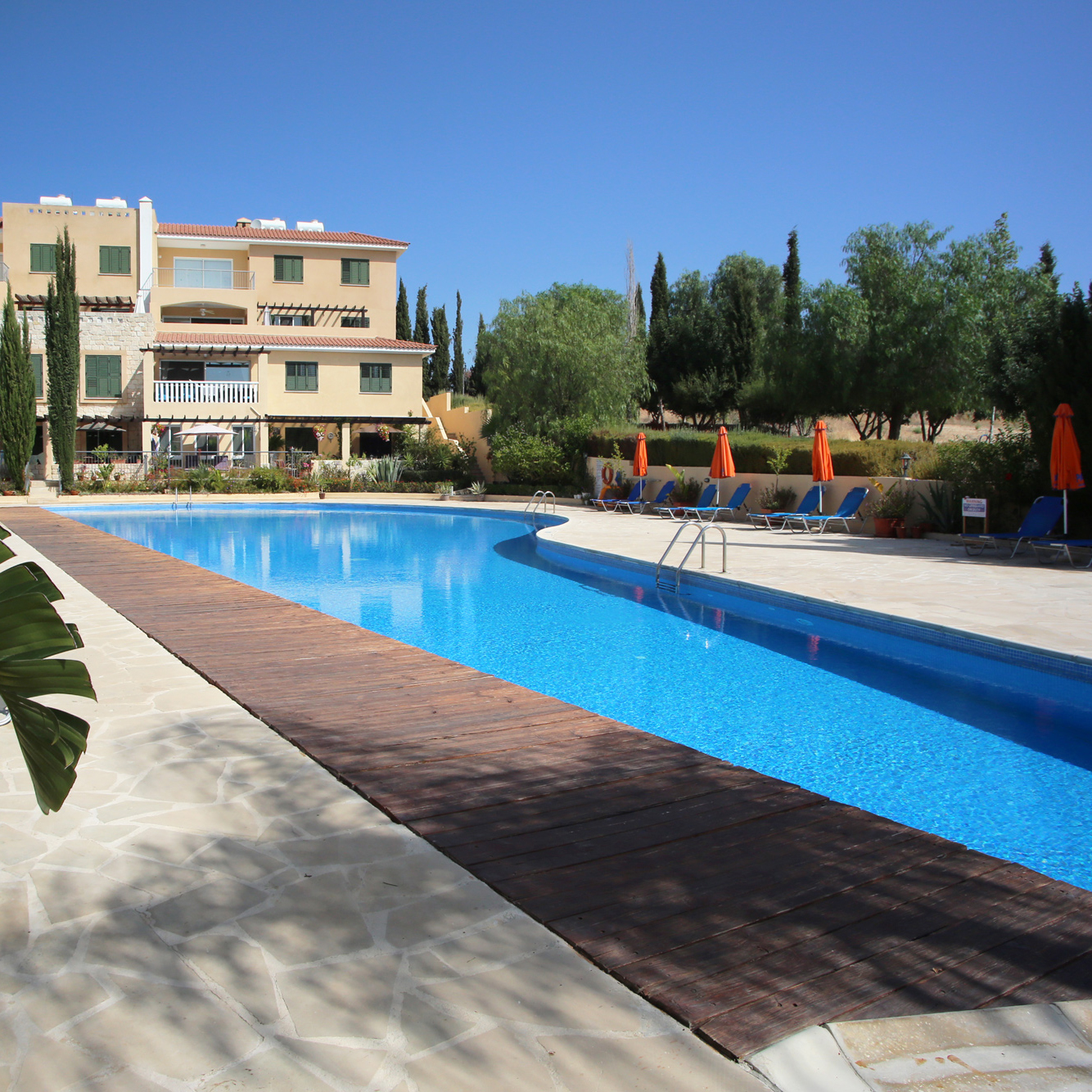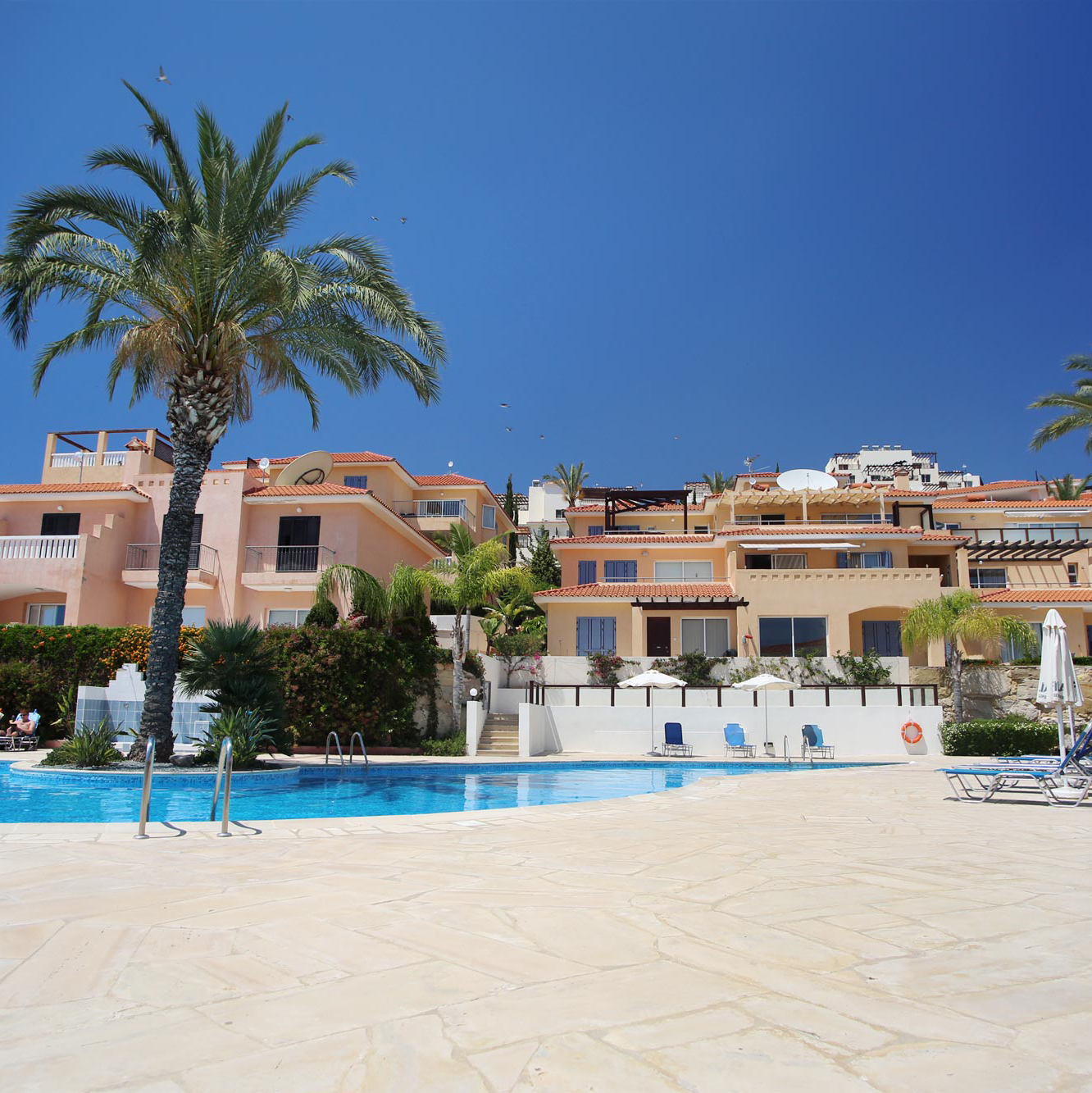Keep up to DateRegister Today
Cyprus Property News
Top tips for pool maintenance in Cyprus
Date: 09/02/24Maintaining a pool in Cyprus can be a rewarding but sometimes challenging task. Even seasoned professionals can make mistakes. Here are some valuable tips from Cyprus Resales Group to ensure your pool remains in top condition:
Addressing Yellow Lights Discoloration:
If your pool lights have taken on a yellowish tint due to sun exposure, you can restore their brilliance by soaking them in a peroxide solution or by using baking soda.
Proper Preparation for Vacuuming:
Before vacuuming your pool, take the time to scrub the pool walls in advance. This allows any debris and buildup to settle at the bottom, making vacuuming more effective.
In cases of exceptionally dirty pools, consider cleaning the filter (backwashing) multiple times during the vacuuming process to prevent dirt from re-entering the pool.
Maintain Optimal Chlorine Levels:
Chlorine is a pool's best friend when it comes to keeping it clean. To ensure proper chlorine levels, use testing strips or an independent chlorine monitor.
Avoid placing chlorine tablets directly in the skimmer, more on this later.
Balance pH Levels:
Don't underestimate the importance of maintaining the right pH levels for a crystal-clear pool. The pH scale ranges from 0 to 14, with 7 being neutral. For optimal pool conditions, you'll want your pool's pH level to fall within the range of 7.2 to 7.8. Anything below this range signifies that your pool is too acidic, while anything above indicates an excessively high alkalinity level.
The following are consequences of not balancing pH levels:
Causes cloudy water: If your pool water appears cloudy, it's likely due to elevated pH levels, indicating alkalinity. In this scenario, calcium becomes less soluble. Over time, this can lead to the formation of calcium carbonate, which may clog and reduce the efficiency of your sand filters and even cause dust to adhere to your pool walls.
Damaged equipment : When pH levels swing to the extremes, such as too low (acidic) or too high (alkaline), it can wreak havoc on your pool's mechanical equipment. High pH levels can accelerate liner aging, necessitating earlier replacements. Conversely, a pH level lower than the ideal range can cause pool liners to expand and wrinkle.
Harmful to swimmers: pH levels are not just about pool equipment; they also affect swimmers. Human bodies tend to function best at a neutral pH of 7. Deviations from this balance can disrupt the body's natural oil barrier, potentially causing skin irritation, eye discomfort, nasal irritation, and dry hair.
Reduces chlorine effectiveness: An imbalanced pH level can compromise the stability and effectiveness of chlorine. Maintaining the right pH balance ensures that chlorine operates optimally. To check pH levels, you can rely on testing strips that provide a comprehensive view of chemical levels in the pool or invest in an independent pH monitor, just remember to calibrate it every so often to get the most accurate results.
Shock the Pool After Heavy Use:
After a pool has seen heavy use, it's essential to restore chemical balance. Consider "shocking" the pool by adding a higher dose of chlorine and a water clarifier. This helps maintain water quality for the next pool users.
Avoid Putting Chemicals in the Skimmer Basket:
It's a common mistake to place chlorine tablets and clarifiers directly in the skimmer basket. This practice can lead to plumbing issues. Instead, use a chemical floater for more even chemical dispersion and safer water treatment.
Flock Your Pool:
When your pool is in a dire state and standard vacuuming isn't sufficient, consider using a pool flock. It gathers debris and allows it to settle at the bottom. Be sure to bypass the filter and send the water directly to waste to prevent filter clogs.
Opt for Epoxy Grout:
We highly recommend using epoxy grout for your pool. It's a non-porous and stain-proof alternative to traditional cement-based grout. Epoxy grout is strong, durable, and leaves a smooth finish, making it perfect for pool surfaces. It's also easy to clean.
Choose Epoxy Paint:
Like epoxy grout, epoxy-based paint is ideal for pool surfaces. It offers superior protection against water and chemical damage compared to regular paint. It's a smart choice to ensure the longevity of your pool's appearance and structure.

